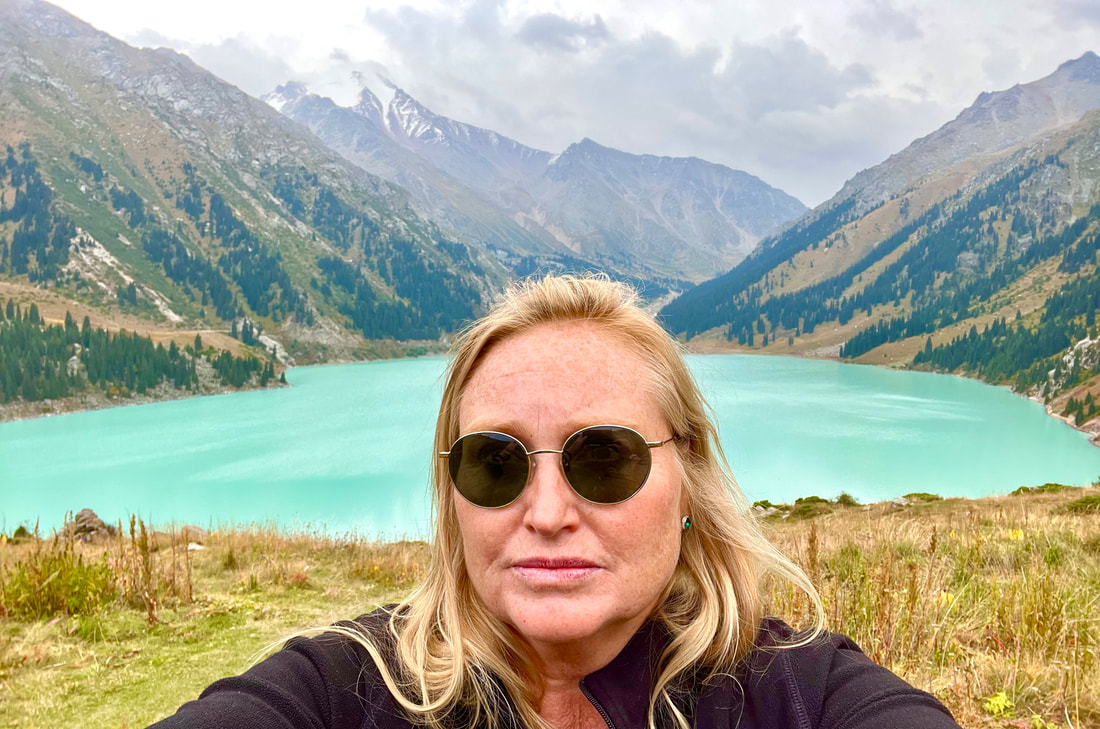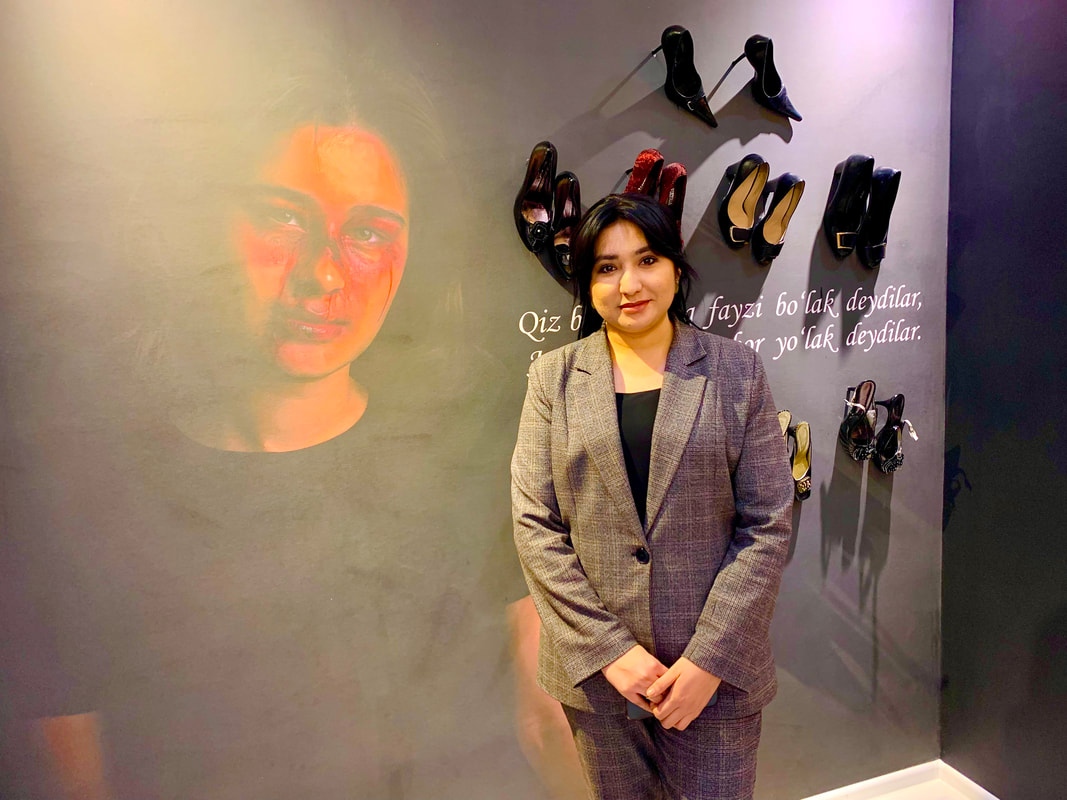|
Feruza Najmiddinova, deputy editor at Qalampir in Tashkent, stands before one of the walls at the news outlet dedicated to Uzbek domestic violence victims. She was the target of a sex video last year. On Friday I interviewed a young female journalist who seven months ago was threatened with a widely circulated sex video on social media. The video showed a woman having sex on a balcony with a man and claimed the woman was Feruza Najmiddinova, then a 29-year-old journalist working for the Qalampir news outlet in Tashkent, Uzbekistan. Feruza had just published an article critical of restaurants in a business complex owned by the Mayor of Tashkent that were regularly breaking the 8 p.m. curfew during the city's Covid quarantine but were not fined by police.
Feruza is a married Muslim woman. This tactic of publicizing sex videotapes is popular in other Muslim countries, such as Azerbaijan, where Khadija Ismayilova, an investigative journalist, was also the target of such a video ten years ago. (See my story about Khadija in the Post.) In 2012, a blackmail video of Khadija having sex with her then-boyfriend surfaced on pro-government websites. Muslim women have been killed for shaming their families by having sex before marriage or with men who are not their husbands. When a close family member learned of the videotape, he was so angry at Khadija, he brought a knife to confront her. In Feruza's case, she was not the woman in the video, but the attempt to shame her publicly and pressure her to stop reporting on controversial subjects was still the intent of those who posted the video. Only in this case, that blackmail backfired. Instead of humiliating her, the video enraged the public. Many organizations, including several governmental bodies and other media organizations, came out and supported the journalist. Harassment on the Internet "remains one of the most disgusting ways to put pressure on journalists," Kamil Allamjanov, an Uzbekistan media ombudsmen told reporters at the time. "The more horrible a lie, the easier it is to believe it," he said. "The goal is to intimidate journalists and force them to resign." Even the President of Uzbekistan's daughter, Saida Mirziyoyeva, created a video message addressed to female journalists urging them not to give in to such blackmail. She ended her social media post with #IamFeruza. That hashtag went viral. Many other women and men began using it to show support for Feruza and female journalists. The outpouring of support forced the police to open an investigation into who made and distributed the the video, but so far nothing has been discovered. Feruza told me she never considered quitting her job as a journalist when the video came out, but her family fears that this kind of harassment and intimidation will end up hurting other family members and possibly Feruza's future children. Her husband, she said, worries about her and even before this incident warned her not to get into conflicts in her reporting. Her editor at Qalampir, Kamariddin Shaykhov, said he and other editors always feared that something like this might happen to one of their journalists. He never anticipated such widespread support, though. He fears that the next time someone tries to blackmail a journalist, the outrage might not be so vocal or widespread. Now whenever Feruza reports a story with conflict, the sex video weighs heavily on her mind, and she fears for her family. Seven months later she is still experiencing occasional intimidation on stories. Sometimes people post comments online, "Wasn't it better to be on the balcony?" or warning her: "Remember the balcony." The Feruza video scandal has had a chilling effect on other female journalists in Uzbekistan. One female journalist told me that whenever she is covering controversial stories, she's had subjects warn her, "Be careful, you don't want to become another Feruza." Comments are closed.
|
Fulbright in Central AsiaFrom March, 2022 to January of 2023, I was a Fulbright Scholar with the U.S. State Department in post-Soviet Central Asia. My previous Fulbright was in Ukraine. For the past six years, I have reported on journalists from post-Soviet countries who have experienced retaliation for reporting the truth. Archives
January 2023
|


 RSS Feed
RSS Feed
